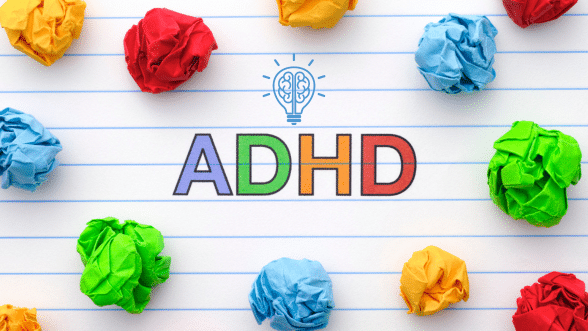ADHD is most commonly diagnosed in childhood, but adults experience ADHD at high rates, too. In fact, it’s estimated that only 20% of adults with ADHD in the U.S. have a proper diagnosis. This means that millions of people are going about their lives untreated. Receiving an adult ADHD diagnosis can change your life for the better, even if it’s a difficult experience at first.
Why Does ADHD Manifest in Some Adults Later in Life?
While the common image of ADHD is of a hyperactive child who can’t pay attention, in reality, the condition manifests differently in everyone depending on numerous factors. It’s also true that many people are well into adulthood before they suspect that their brains don’t necessarily work the same way that their peers’ do.
However, this doesn’t mean that the condition wasn’t there from childhood. While a growing body of research is investigating late-onset or adult-onset ADHD, the condition is still largely considered a childhood neurodevelopmental disorder. The source and cause of the disorder, whether it manifests in childhood or adulthood, is not well understood.
For many, an ADHD diagnosis in adulthood likely means that the condition has been present for much of an individual’s life and remained undiagnosed. This may be because of missed symptoms as a child, especially for those whose ADHD symptoms primarily manifest internally and remain invisible.
What does ADHD look like for adults?
Adult ADHD Symptoms
Many of the symptoms of ADHD in adulthood mirror those that are present in childhood cases, but an individual may experience fewer overall symptoms. Adult ADHD symptoms can be subtle, making everyday tasks seem difficult without there being a clear reason why these difficulties are arising, and they may seem explainable due to other environmental or social factors, such as stress from work, finances, or other mental health issues.
It’s common for people with adult ADHD to lose their keys or phone frequently, feel restless, or have trouble holding down a job, all of which can feel attributable to other causes. These individuals may also be impulsive, have poor planning skills and trouble multitasking, struggle with time management or following through with tasks and other engagements. Other adult ADHD symptoms include mood swings, temper problems, forgetfulness, frequent fidgeting, and trouble coping with stress.
Post-diagnosis experiences
After receiving an adult ADHD diagnosis, it’s common for someone to feel surprised, sad, or upset. Some people even feel guilt or shame, blaming themselves for the condition. These emotions are normal. It’s common to feel like you’re grieving for a version of yourself that doesn’t exist anymore, and it’s emotionally intense to have a new lens to interpret your past through.
Sometimes these emotions are mixed in with relief and joy, making the experience confusing and tumultuous. It’s normal to experience these things in waves for days or weeks after diagnosis, and it’s crucial to remember that you’re not alone. There are others going through this, and there are others who went through this and then were able to move forward with the help of a diagnosis and some appropriate treatment. Take time to process these feelings and accept and understand them. Then it may be time to focus on growth.
What Are Ways to Cope With Adult ADHD?
Seek Medical Treatment
Moving forward after an adult ADHD diagnosis starts with seeking appropriate medical treatment. For most, this involves identifying the best medication and dosage to help treat their symptoms. Once these symptoms are well-treated, you’ll quickly notice changes in your life. Tasks that were seemingly impossible before may suddenly feel trivial. You may find yourself with more time in the day, and you’ll likely enjoy activities and social time more. All of these improvements can boost a person’s mental health, and the diagnosis may begin to seem like a blessing rather than a curse.
Adjust Your Lifestyle
Once you’ve received an adult ADHD diagnosis, it becomes easier to identify what stimuli trigger it and what environments help you focus, and you can use that self-knowledge to set yourself up for success.
Lean into strategies that help you maintain a useful routine, such as keeping a calendar or journal, making a new system for reminders and tasks that need to be completed, and rethinking how you organize. You may even want to designate certain areas of your living space strictly for work or strictly for relaxation. Experiment with what works best for you, and stick to the positive and leave what doesn’t work behind.
Seek Executive Function Coaching
If you’re unsure how to start with this journey, seek out an executive function coach. These trained professionals can help you find the tools you need to get medical help, and they also provide training for organizational skills and strategies to maximize your executive function. They will work with you to identify positive patterns and behaviors that you can use to your advantage in order to make the most of your diagnosis. Contact us today to learn more.





